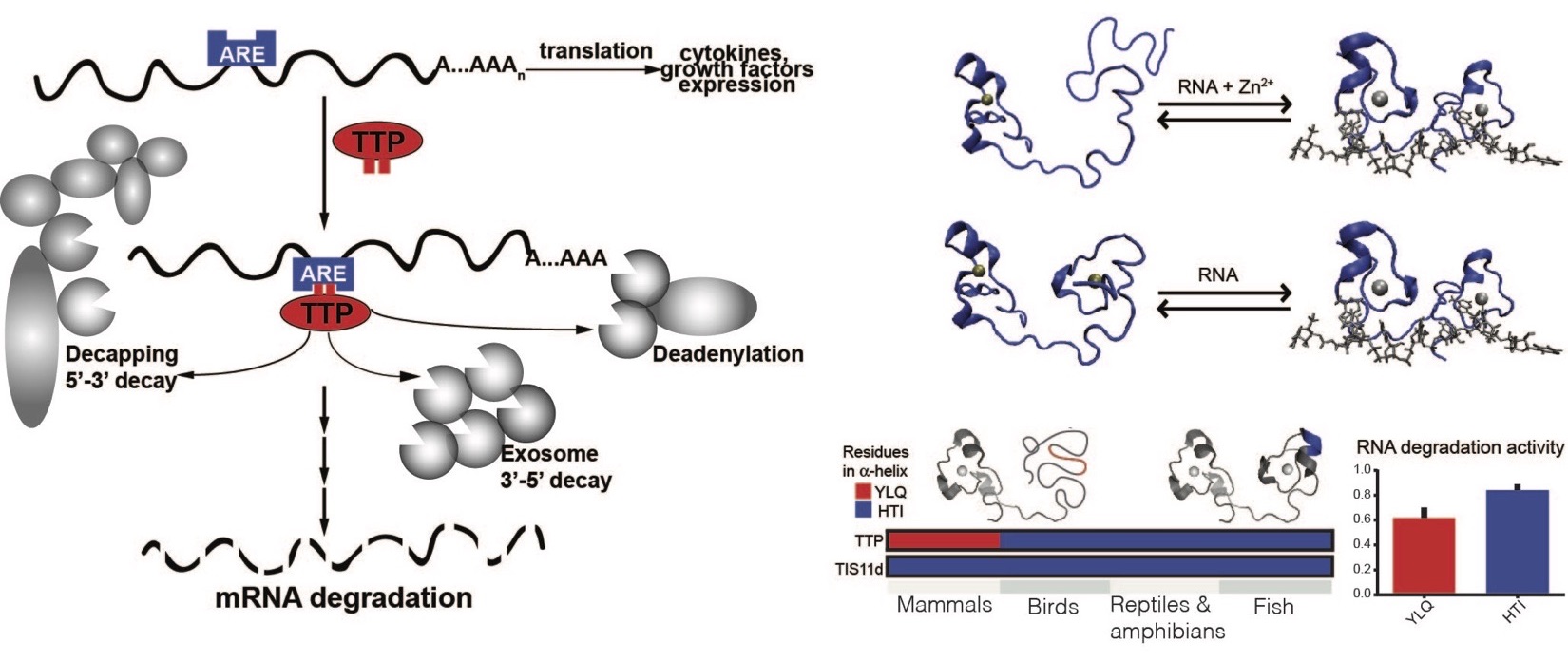Post Transcriptional Regulations by AU-Rich Element Binding Proteins
The TTP protein family regulates cytokine mRNA turnover:
Regulation of gene expression is central to efficient biological function. Two key aspects of this process are the synthesis of mRNA (transcription) and control of its stability. This process provides an important mechanism for controlling the synthesis of key cancer-related proteins, including a number of cytokines, such as tumor necrosis factor-α (TNF-α), interleukin-3 (IL-3), interleukin-8 (IL-8), and vascular endothelial growth factor (VEGF) that regulate processes that are involved in inflammation and in cancer initiation and progression. Our work is uncovering how AU-rich binding proteins recognize and bind to mRNA to regulate its stability. Our lab focuses on TTP protein family that regulates mRNA degradation by binding the AU-rich elements in the 3’ untranslated region.
Lack of structure in TTP affects its activity in the cell:
In humans, there are three members in the TTP protein family: TTP, TIS11b and TIS11d. Structural studies performed by us and others have shown that while the tandem zinc finger (TZF) domain of TTP is partially unstructured in the free state and folds upon binding RNA, those of TIS11d and TIS11b are always folded. We have shown that the degree of structure of the TZF domain affects the activity of the protein in cells and indicates that the protein can modulate its activity through its dynamics. We are currently interested in determining whether structural disorder is directly linked to cellular stability or protein localization.
How do mutations in the RNA-binding domain of TTP and TIS11d cause cancer?
Downregulation and dysfunction of proteins of the TTP family is associated with cancer. In particular, point mutations in the RNA-binding domain of TIS11d are found in leukemia patients. We are currently working on the characterization of the structure, dynamics and biological activity of these mutant proteins to understand their role in the pathogenesis of cancer.


